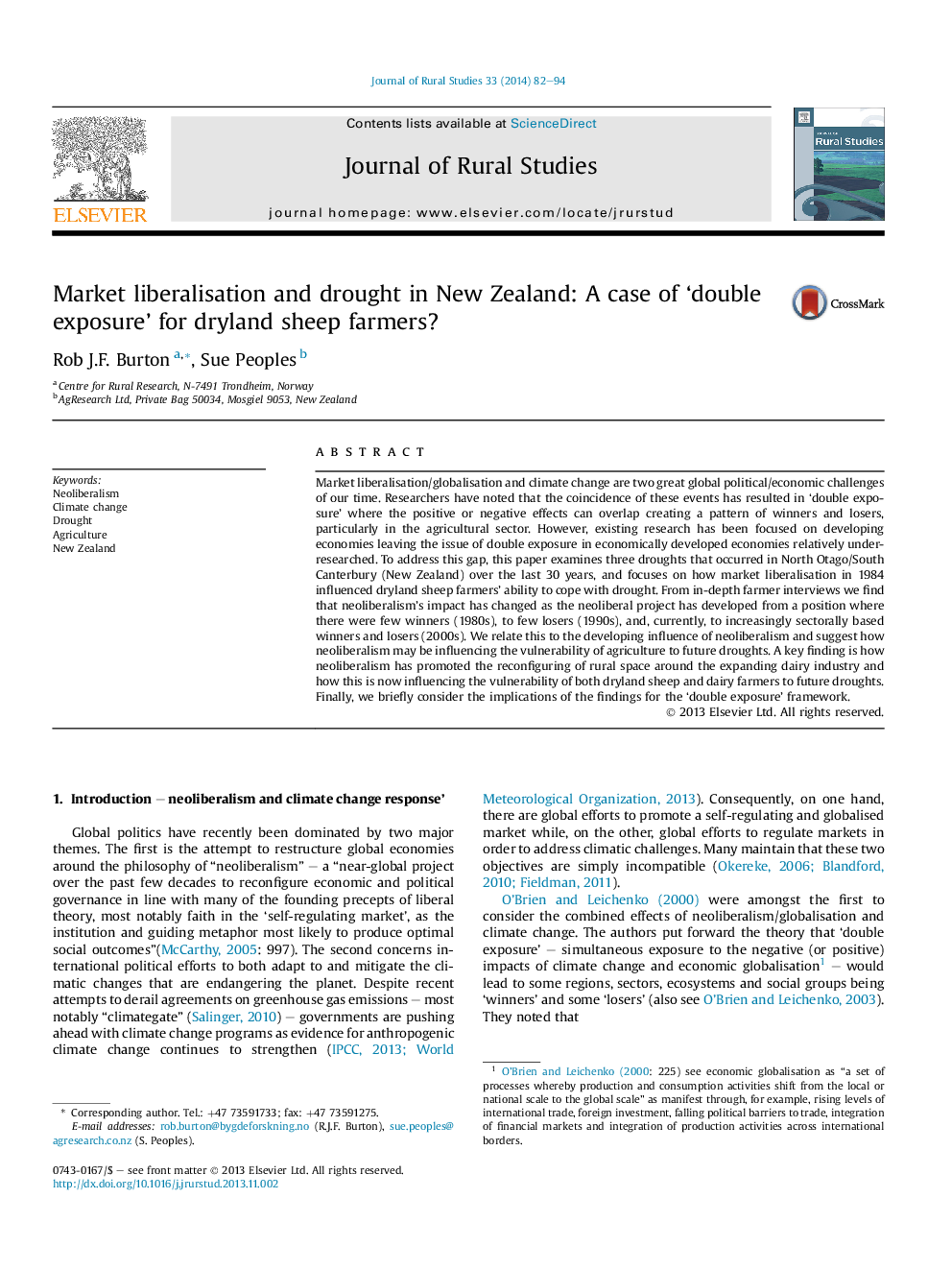| Article ID | Journal | Published Year | Pages | File Type |
|---|---|---|---|---|
| 6545864 | Journal of Rural Studies | 2014 | 13 Pages |
Abstract
Market liberalisation/globalisation and climate change are two great global political/economic challenges of our time. Researchers have noted that the coincidence of these events has resulted in 'double exposure' where the positive or negative effects can overlap creating a pattern of winners and losers, particularly in the agricultural sector. However, existing research has been focused on developing economies leaving the issue of double exposure in economically developed economies relatively under-researched. To address this gap, this paper examines three droughts that occurred in North Otago/South Canterbury (New Zealand) over the last 30 years, and focuses on how market liberalisation in 1984 influenced dryland sheep farmers' ability to cope with drought. From in-depth farmer interviews we find that neoliberalism's impact has changed as the neoliberal project has developed from a position where there were few winners (1980s), to few losers (1990s), and, currently, to increasingly sectorally based winners and losers (2000s). We relate this to the developing influence of neoliberalism and suggest how neoliberalism may be influencing the vulnerability of agriculture to future droughts. A key finding is how neoliberalism has promoted the reconfiguring of rural space around the expanding dairy industry and how this is now influencing the vulnerability of both dryland sheep and dairy farmers to future droughts. Finally, we briefly consider the implications of the findings for the 'double exposure' framework.
Related Topics
Life Sciences
Agricultural and Biological Sciences
Forestry
Authors
Rob J.F. Burton, Sue Peoples,
